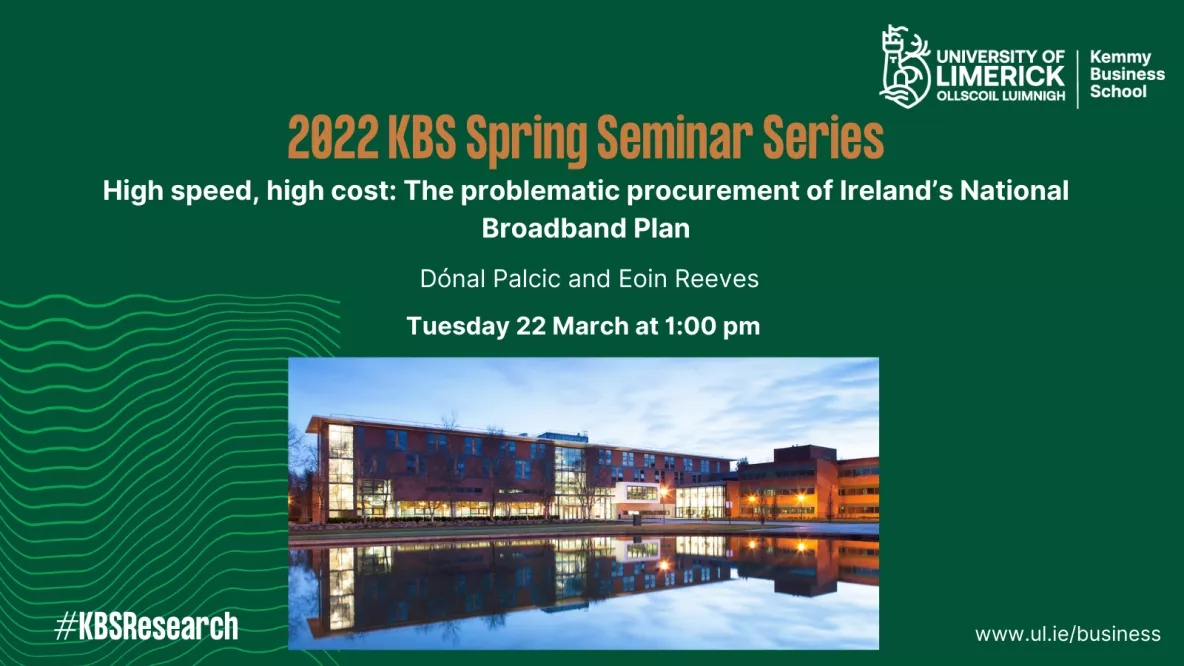

The 2022 KBS Spring Series continues Tuesday 22nd March at 1:00 pm with a seminar by Dónal Palcic and Eoin Reeves. The seminar format is informal and interactive facilitating discussion and Q&A and will take place on MS Teams. The title and abstract are below. Click here to join the meeting
High speed, high cost: The problematic procurement of Ireland’s National Broadband Plan
In December 2015 the Irish government launched the tendering process for a National Broadband Plan to deliver high-speed broadband to every premise in the country. The government opted for a gap funding commercial stimulus PPP model for the delivery of the plan. Under the gap funding approach, the government contracts with a private sector partner to finance, design, build, own and operate the broadband infrastructure, with the government providing the minimum amount necessary in the form of a subsidy to facilitate the delivery of the project.
The subsequent history of the NBP procurement has been highly controversial as it was beset by a series of issues that led to long delays in the signing of a contract and a massive increase in the size of the government subsidy, which is now estimated to cost at least €2.2 billion (EC 2019). These events raise important questions that we seek to address in this paper. These cover the rationale for the regulatory choice made by the government (the gap funding model) and whether the chosen model has been workable. We also examine the conduct of the procurement process, the factors (economic, political, and institutional) that contributed to the significant escalation in cost and protracted nature of the procurement process, and the ultimate impact of changes to ownership and competition in the telecommunications market that were instigated over 20 years ago.
To examine these questions, we utilise the transaction cost regulation (TCR) framework based on the contributions of Williamson (1975, 1999) and Spiller (2013), which elucidate the contractual hazards that affect the governance of infrastructure regulation and the interaction between private investors and government. The principal obstacles to the process have been the opportunistic actions of the incumbent fixed-line operator, the complete absence of competition for the contract after the withdrawal of two bidders for the contract, and the political dynamics that surrounded the procurement process which saw the forced resignation of the Minister with responsibility for the plan, as well as a massive escalation in the cost of subsidy to the government
All are warmly welcome, further information on the KBS Spring series can be found at https://www.ul.ie/business/research/research-events
Email: business@ul.ie
Postal Address: Faculty Office, Kemmy Business School, University of Limerick, Limerick, Ireland.
